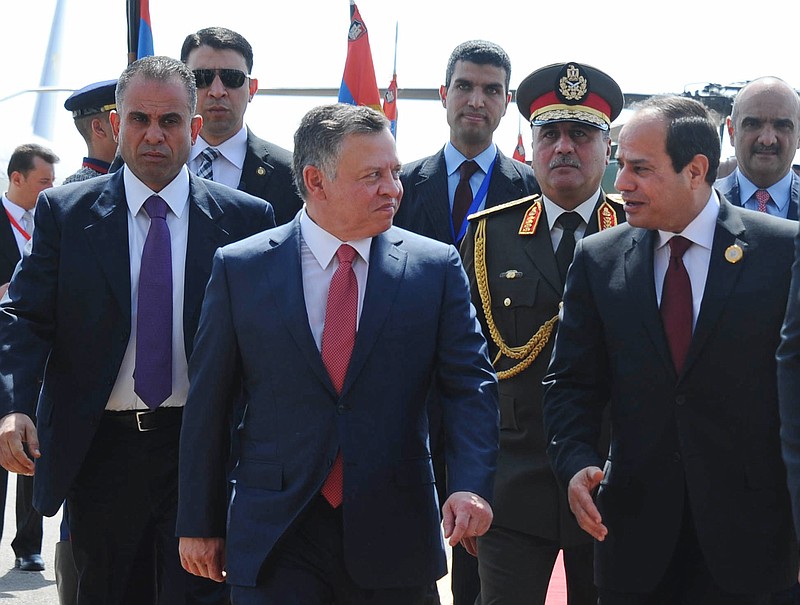CAIRO (AP) - Arab League member states have agreed in principle to form a joint inter-Arab military peacekeeping force. While details of how such a force would actually operate remain thin, the agreement is a telling sign of a new determination among Saudi Arabia, Egypt and their allies to intervene aggressively in regional hotspots, whether against Islamic militants or spreading Iranian power. Here's a look at some of the questions surrounding the plan:
---
HOW WILL THE JOINT FORCE WORK?
Senior officials from participating counties have been dispatched to collectively examine the issue and report back within about a month. Egyptian President Abdel Fattah el-Sissi, a strong proponent of the idea, has described the force as an absolute necessity. Egyptian military and security officials have said the proposed force would be made of up to 40,000 elite troops and will be headquartered in either Cairo or Riyadh, the Saudi capital. The force would be backed by jet-fighters, warships and light armor.
---
WHO WILL LEAD IT?
Saudi Arabia, as the region's economic powerhouse, will likely take a leadership role. Egypt, which boasts the Arab world's largest standing army, will also be a major player. However Egypt is heavily dependent on financial aid from Saudi Arabia and other Sunni Gulf Arab nations who have donated billions to bankroll the country's struggling economy. The combination of common concerns between Riyadh and Cairo and economic dependence will probably mean that the specific concerns and fears of the Gulf Arab monarchies will hold sway.
---
IS THERE ANY PRECEDENT FOR THIS?
Creation of such a force has been a longtime goal that has eluded Arab nations in the 65 years since they signed a rarely used joint defense pact. Gulf nations, under the umbrella of the Gulf Cooperation Council joined forces to defeat a string of destabilizing Arab Spring protests in 2011 by the Shiite majority in Sunni-ruled Bahrain
---
WILL THE JOINT FORCE BE DEPLOYED IN YEMEN?
All indications from participants in the Arab League summit in the Egyptian resort town of Sharm el-Sheikh are that the force could take months to truly come together. That is most likely too long for it to play a meaningful role in the current Yemeni crisis. However the current ad hoc Saudi-led coalition that is conducting airstrikes against Shiite rebels who have conquered most of Yemen could serve as a template for what the force will eventually become.
---
WILL THE FORCE REPRESENT ALL 22 ARAB LEAGUE NATIONS?
Unlikely, since already there are indications in Sharm el-Sheikh that joining the force will be optional. The force, as currently envisioned, would essentially be a Sunni Muslim Arab force representing the interests of Sunni nations like Saudi Arabia and Egypt. In addition to potentially combatting radical Sunni forces like al-Qaida and the Islamic State group, it may also be deployed in ways designed to counter the influence of Shiite regional powerhouse Iran. Arab countries like Iraq, where Iran wields significant influence over the government, have already expressed public reservations about the plan.
